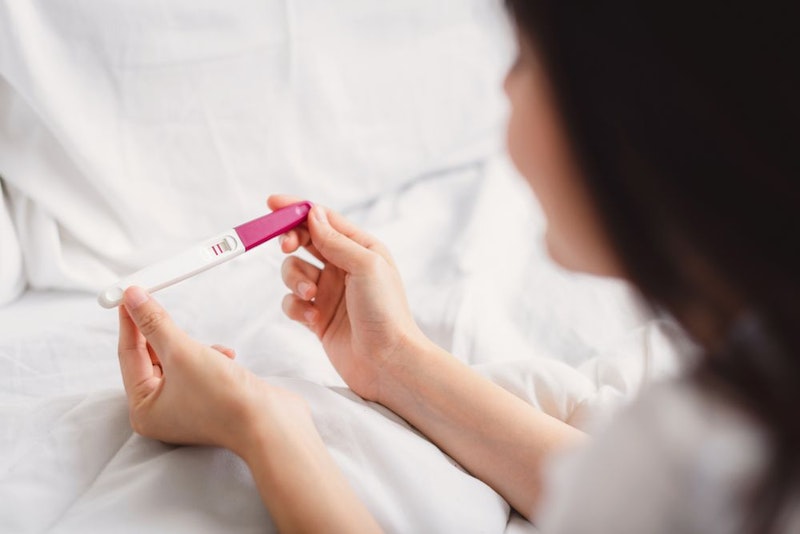Introduction
In vitro fertilization (IVF) is a groundbreaking assisted reproductive technology that has helped countless individuals and couples achieve their dreams of parenthood. One of the most anticipated moments in the IVF journey is discovering whether the procedure has been successful. In this comprehensive guide, we will explore the timeline for detecting pregnancy in IVF, from the embryo transfer to the earliest possible signs and tests for confirmation.
Understanding the IVF Process
Before delving into pregnancy detection, it’s essential to have a basic understanding of the IVF process:

- Ovarian Stimulation: IVF typically begins with ovarian stimulation, where fertility medications are used to stimulate the ovaries to produce multiple mature eggs.
- Egg Retrieval: Once the eggs are mature, a minor surgical procedure called egg retrieval is performed to collect them.
- Fertilization: The retrieved eggs are then fertilized with sperm in a laboratory dish to create embryos.
- Embryo Culture: The resulting embryos are cultured and monitored for several days to determine their quality and development.
- Embryo Transfer: Finally, one or more healthy embryos are selected and transferred into the woman’s uterus, where they have the potential to implant and develop into a pregnancy.
When Can Pregnancy Be Detected in IVF?
The timeline for detecting pregnancy in IVF can vary depending on several factors, including the type of IVF procedure, the stage at which the embryos are transferred, and individual variations in hormonal levels and implantation.
1. Embryo Transfer Stage: In traditional IVF, embryos are typically transferred on either day 3 or day 5 after fertilization. The stage at which the embryos are transferred can affect when pregnancy can be detected:
- Day 3 Transfer: With a day 3 transfer, pregnancy can potentially be detected as early as 7 to 10 days after the transfer.
- Day 5 (Blastocyst) Transfer: Blastocyst transfer on day 5 allows for a slightly later detection window, usually around 9 to 11 days after the transfer.
2. Hormonal Levels: Human chorionic gonadotropin (hCG) is the hormone produced by the developing placenta early in pregnancy. The timing of hCG production and its rise in the bloodstream can vary among individuals. Some women may have higher levels of hCG earlier, making detection possible sooner.
3. Home Pregnancy Tests: Home pregnancy tests (HPTs) are designed to detect hCG in urine. Many women opt to take an HPT as early as 10 to 14 days after embryo transfer. However, it’s essential to remember that the accuracy of these tests can vary, and a negative result does not necessarily mean a failed IVF cycle.
4. Blood Tests: A blood test for hCG, often referred to as a beta hCG test, is typically more sensitive and accurate than HPTs. Blood tests can detect pregnancy as early as 7 to 14 days after embryo transfer, depending on individual hCG levels.
The Two-Week Wait (2WW)
After the embryo transfer, patients often experience what is commonly referred to as the “two-week wait” (2WW). This is the period between the transfer and the earliest time when pregnancy can be detected. The 2WW can be an emotionally challenging time, filled with anticipation and uncertainty.
During this period, it’s essential to:
- Follow your fertility clinic’s instructions regarding medications, rest, and activity levels.
- Manage stress through relaxation techniques and support from loved ones.
- Avoid over-the-counter medications and supplements not approved by your doctor.
- Stay hydrated and maintain a healthy diet.
Early Signs and Symptoms of Pregnancy in IVF
While waiting for the official pregnancy test, some women may notice early signs and symptoms that could indicate a potential pregnancy. However, it’s important to note that these signs can also be attributed to medications, hormonal changes, or psychological factors. Common early pregnancy symptoms may include:

- Breast Tenderness: Some women experience breast tenderness or swelling.
- Fatigue: Feeling unusually tired is a common early pregnancy symptom.
- Mild Cramping: Mild uterine cramping can occur as the embryo implants.
- Spotting: A small amount of spotting or implantation bleeding may occur when the embryo attaches to the uterine lining.
- Changes in Appetite: Some women notice changes in their appetite or food cravings.
- Increased Urination: Frequent urination can occur due to hormonal changes.
- Mood Swings: Hormonal fluctuations can lead to mood swings or emotional changes.
It’s important to remember that not all women experience these symptoms, and their absence does not necessarily indicate a failed IVF cycle. Additionally, these symptoms can mimic those of an upcoming menstrual period.
Pregnancy Confirmation
The most reliable method for confirming pregnancy in IVF is through a blood test for hCG, conducted by your fertility clinic. This test provides a precise measurement of hCG levels and can detect pregnancy earlier than home pregnancy tests. Your fertility specialist will monitor your hCG levels over several days to ensure they are rising appropriately, indicating a viable pregnancy.
The Emotional Rollercoaster of IVF
The IVF journey is filled with emotional highs and lows. The anticipation of pregnancy detection, the joy of a positive test result, or the disappointment of a negative outcome can take a toll on your emotional well-being. It’s essential to seek emotional support from your partner, family, friends, or a mental health professional if needed. Many fertility clinics also offer counseling services to help you navigate the emotional challenges of IVF.
Understanding False Positives and Negatives
In IVF, it’s crucial to be aware of the possibility of false-positive and false-negative results.

- False Positives: Occasionally, an HPT or blood test may yield a positive result, but the pregnancy may not be viable. This can occur due to a chemical pregnancy, where the embryo fails to develop properly. A follow-up with your fertility clinic is necessary to confirm the pregnancy’s viability.
- False Negatives: A negative result on an HPT or blood test may not necessarily indicate a failed IVF cycle. In some cases, hCG levels may take longer to rise to detectable levels. It’s essential to follow your clinic’s testing schedule to avoid prematurely ruling out a viable pregnancy.
Second Beta HCG Test
After the initial positive beta hCG test, your fertility clinic will likely schedule a second test to monitor the hCG levels’ progression. A doubling or rising pattern of hCG levels is typically indicative of a healthy pregnancy. This second test helps confirm the viability of the pregnancy.
Potential Complications and Risks
While IVF can lead to successful pregnancies, it’s essential to be aware of potential complications and risks associated with the procedure:
- Ectopic Pregnancy: IVF pregnancies have a slightly higher risk of ectopic pregnancy, where the embryo implants outside the uterus. Early detection and intervention are crucial in such cases.
- Multiple Pregnancies: IVF increases the likelihood of multiple pregnancies, which carry higher risks for both the mother and the babies. Your fertility clinic will monitor and manage this risk closely.
- Ovarian Hyperstimulation Syndrome (OHSS): Ovarian stimulation medications used in IVF can sometimes lead to OHSS, a condition characterized by enlarged ovaries and fluid accumulation in the abdominal cavity. Monitoring and appropriate management are essential.
Conclusion
Detecting pregnancy in IVF is a significant milestone in the journey toward parenthood. The timeline for detection varies depending on the specific circumstances, but it is generally possible to detect pregnancy within two weeks of embryo transfer. While the two-week wait can be emotionally taxing, it’s essential to stay positive, manage stress, and follow your fertility clinic’s guidance.
Remember that every IVF journey is unique, and individual experiences may differ. Whether you receive a positive or negative result, know that you are not alone, and there are many resources and support networks available to assist you along the way. The path to parenthood through IVF may be challenging, but the reward of a healthy pregnancy and the joy of becoming parents make it all worthwhile.
